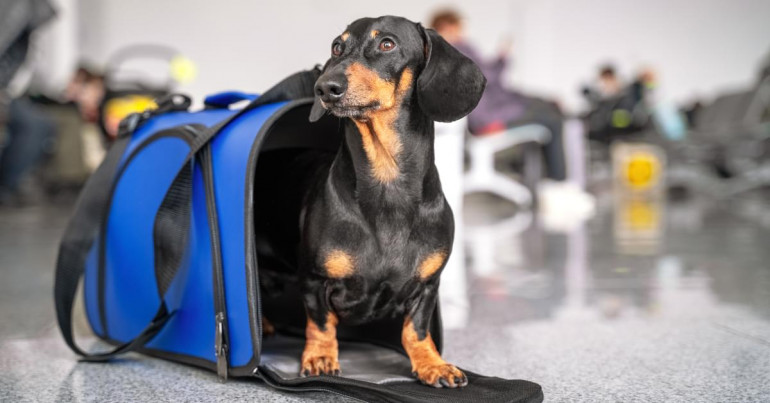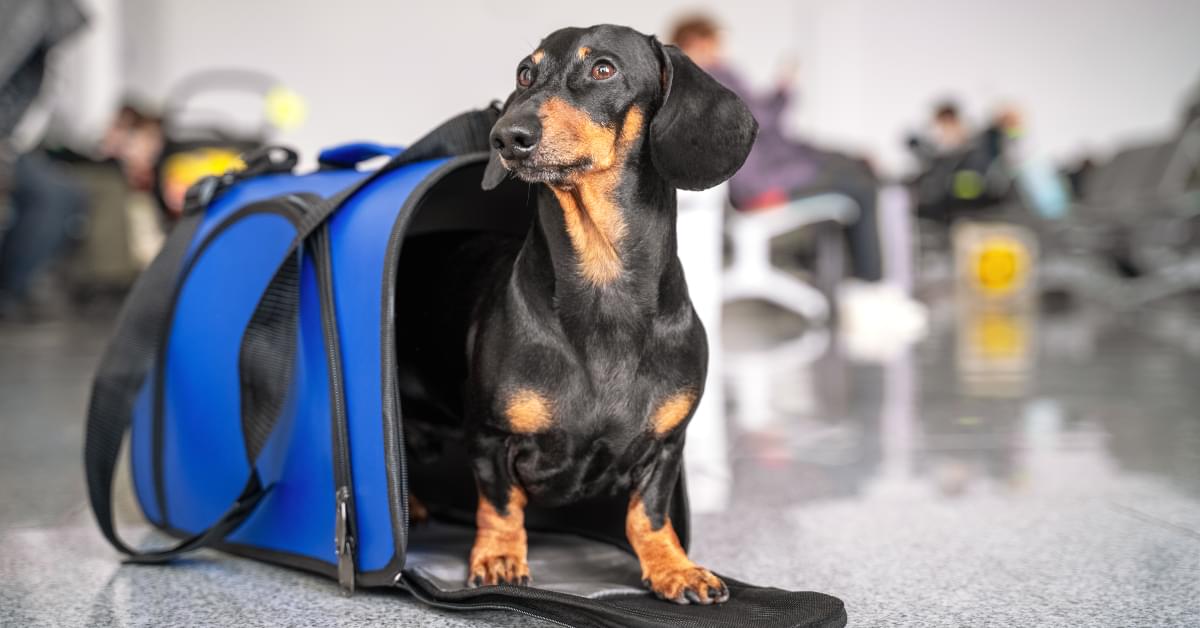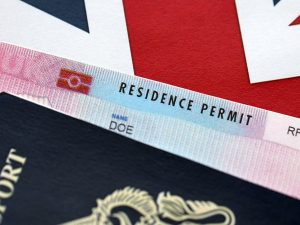
Thousands of families move abroad each year. While it may be difficult to part with one's friends or childhood home, you don't have to say goodbye to your beloved family pet. Travelling abroad with pets has become more common, so much so that you can find dozens of dedicated pet relocation services online.
Most countries have established rules and regulations governing the import of animals.
Read this article to learn more about immigrating to the EU or UK with your animals.

Regulations when moving with pets to Europe
It's fairly easy to move to the EU with pets unless you’re travelling from Asia or Africa.
No matter where you travel from, if relocating dogs, cats or ferrets:
- You must microchip your pet
- Your pet must be vaccinated against rabies and have written proof of vaccination (vaccinations received before being microchipped are not valid and must be re-administered)
- Your pet must have had treatment against tapeworm
- You must have an animal health certificate (AHC) issued by an authorised veterinary service within your country of origin no more than 10 days before your departure
If moving to the EU from a part 1 listed country (such as Switzerland, Greenland or Iceland), in addition to the rules above, you must attach a written declaration to your pet's AHC stating that its relocation is for non-commercial reasons.
If moving to the EU from a part 2 listed country (such as the UAE, Japan or Canada), in addition to the general rules, you must attach a written declaration to your pet's animal health certificate stating that its relocation is for non-commercial reasons. Pets and assistance dogs may only enter the EU through a Traveller's Point of Entry (TPE)
Documentation is valid only for a single entry to the EU. Travel within the EU is permitted for four months from your pet's entry date. If migrating to the EU permanently, you must apply for an EU pet passport soon after you arrive.
If you're travelling from an unlisted country, you must abide by all regulations that apply to part 2 listed countries. In addition, you must submit a valid anti-rabies titration test from an EU-approved laboratory. This test can be carried out 30 days after receiving the rabies vaccination (the 30-day time limit for rabies vaccinations does not apply).
What is an EU pet passport?
If you are an EU citizen, you can apply for a European pet passport from any authorised veterinarian.
Information in this document includes:
- A description of your pet
- Its microchip number and rabies vaccination record
- Contact details of the owner and the vet who issued the passport.
A pet passport is valid as long as your pet's rabies vaccination is up to date.
What is an EU animal health certificate?
An official state veterinarian can issue EU animal health certificates. You must acquire an animal health certificate within 10 days of your pet's arrival in the EU.
EU health certificates contain the following information about your pet:
- Owner's details
- A description of your pet
- Rabies vaccination details
- Tapeworm treatment
- Point of entry into the EU.
The AHC must be in the language of the country you are entering, not your country of origin.
What kind of animal can I legally bring into the EU?
If you are travelling to an EU country with birds, reptiles, rodents, or rabbits, consult local authorities at your intended destination for more information, as laws may vary.
How many pets can I travel with to the EU?
You can bring a maximum of 5 pets into Europe for personal (i.e., non-commercial) purposes.
If participating in a competition, exhibition or sporting event, you may be permitted to bring more than 5 animals but will require written evidence that all pets are registered with a relevant association.
Tips for moving to the EU with pets
- Book a pet-friendly hotel – If not moving directly into your new residence, know that most hotels in the EU have strict no-pet policies. Others may charge extra to accommodate your animals. Be sure to find suitable accommodation before you travel.
- Find your local vet ASAP – Long-distance travel and a sudden change of environment may cause high levels of stress and make your pets ill. Be sure to know where to take your pets for treatment if needed.
- Fly with a pet-friendly airline – Different countries enforce different rules regarding animal transportation. In the US, for example, there is no law which states that emotional support animals must be allowed to travel in the cabin. Be sure to fly with a carrier that facilitates animal transportation and has good reviews.
Travelling with pets to the EU after Brexit
Laws regarding travel to the EU from the UK changed on 1 January 2021.
Pet passports issued in the UK are now invalid for travel to the EU and Northern Ireland. The EU lists the UK as a part 2 country.

Regulations when moving with pets to the UK
Like the EU, the UK has standard provisions when travelling with a dog, cat or ferret:
- You must have a pet passport if importing animals from a part 1 listed country,
- If you're travelling from a part 2 listed country (or a part 1 country that does not issue pet passports), you’ll need a pet health certificate.
If moving to the UK from an unlisted country, you must:
- Renew your pet's rabies vaccination and have a blood sample taken after 30 days
- Test the blood sample at an EU-approved laboratory and receive a 'clean' result
- Wait 3 months from the date a vet took the sample before you travel to the UK
- Have a copy of the test results and a pet health certificate.
How can I get a UK pet passport?
A UK pet passport lists the different treatments your pet has had and is essential for travel to the UK.
You can get a pet passport from any authorised vet. If you cannot find a vet able to do so, contact the Animal and Plant Health Agency.
When issued a pet passport, you'll need to do the following:
- Bring your pet with you as well as its vaccination records
- Take with you any rabies blood test results
You'll need a new pet passport when all the treatment spaces are full.
How can I get a UK pet health certificate?
You can apply for a UK-valid pet health certificate online.
You'll need a pet health certificate if moving to the UK from a part 2 listed country, an unlisted country or a part 1 listed country that cannot issue a pet passport.
Your pet must arrive in the UK within 10 days of receiving a pet health certificate.
What animals can I legally bring into the UK?
You can bring cats, dogs and ferrets with you into the UK if you follow standard regulations. The following dog breeds cannot be imported to the UK, regardless if they are personal pets or for commercial purposes:
- Pit Bull Terrier
- Japanese Tosa
- Dogo Argentino
- Fila Brasileiro.
There are no import restrictions on rodents, rabbits, invertebrates, amphibians or reptiles to the UK from EU countries. Pet birds will require a health certificate.
If you bring in pets from a non-EU country, any invertebrates, reptiles, and amphibians must have a signed declaration from the owners saying the animals are:
- Not for commercial purposes
- Healthy
- Able to complete the journey.
To import a pet bird from a non-EU country, you will need a health certificate and a pet bird import licence from the Animal and Plant Health Agency.
Importing cats from Australia
To bring a cat into the UK from Australia, you must have a certificate from the Australian Department of Agriculture confirming your cat is not at risk of infection from the Hendra virus.
Importing dogs and cats from Malaysia
To bring in a cat or dog from Malaysia, you must have a certificate from the Malaysian veterinary health services which shows your pet:
- Has not been in contact with pigs for at least 2 months before departure
- Has not been in an area infected by Nipah virus for at least 2 months before departure
- Tested negative for Nipah virus antibody - taken no more than 10 days before you leave.
Tips for moving to the UK with pets
- The UK does not recognise emotional support animals (ESAs) as service animals and will not permit them to travel with owners in the cabin. It does however, comply with any foreign legislation which does so. You can fly with pets if travelling from a country that recognises ESAs.
- If your pet's microchip does not meet International Organisation for Standardisation (ISO) standards, you must bring your microchip reader when you travel.
- Your pet does not need a microchip if tattooed with an ID number before 3 July 2011, and your pet passport (or health certificate) contains information regarding the most recent rabies vaccines.

How can CurrencyTransfer help you?
If you're moving your family, home and pets to a foreign country this year, let CurrencyTransfer and our payment specialists help you in your journey.
Using a network of FCA-approved brokers, CurrencyTransfer makes moving your money easy. We offer you secure, transparent and fast transfer of foreign currency, whether it’s to purchase an overseas property or make a large international payment.
Matthew Swaile
Copywriter
Florence Couëdel
Editor



